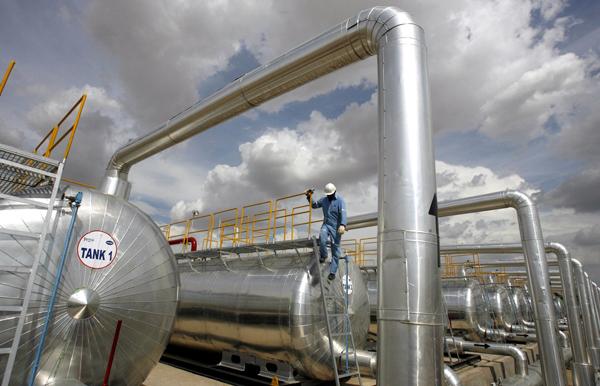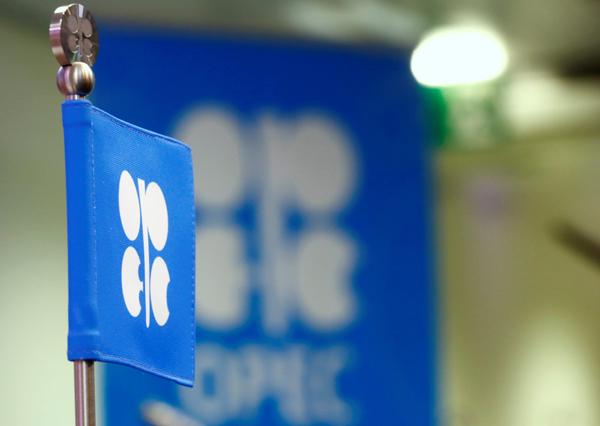You are here
More Russian oil drilling shows its resolve to OPEC
By Reuters - Nov 30,2015 - Last updated at Nov 30,2015
MOSCOW — Russian oil firms are drilling more, showing the world's top crude producer is ready for a longer fight for market share with the Organisation for Petroleum Exporting Countries (OPEC), as its industry can carry on even if oil prices reach $35 per barrel.
As OPEC prepares to meet on Friday in Vienna, Russia is sending a low key delegation for talks which are very unlikely to result in any output deal.
OPEC oil ministers have repeatedly said they would only cut production in tandem with non-OPEC.
According to Eurasia Drilling Company (EDC), the largest provider of land drilling services in Russia and offshore in the Caspian Sea, Russian drilling measured in metres rose 10 per cent in the first six months of this year from a year ago, despite a decline in oil prices to less than $50 per barrel from their peaks of $115 in June 2014.
"Despite the recent fall in oil prices, Russian production, continued to accelerate, as oil producers remained profitable even in the lower oil price environment, helped by the effect of a weak ruble on costs and lower taxes, which decline in a lower oil price environment," Bank of America Merrill Lynch indicated in recent research.
Moscow has surprised OPEC by ramping up output to new record highs this year despite low oil prices, which OPEC had hoped would depress production from higher cost producers.
Moscow responded by steeply devaluing the ruble, giving an edge to its exporters. In many OPEC Gulf producers, currencies are firmly pegged to the dollar.
According to EDC, the Russian drilling market is based on long-term contracting, which results in lower pricing and less margins volatility, as compared to other countries more subject to the spot market.
Total drilling has more than doubled over the past decade to more than 22 million metres per year.
Russian oil production, which together with sales of natural gas account for half of state budget revenues, has been steadily rising since 1998, apart from a marginal decline in 2008.
According to official data, the number of producing wells in Russia has increased in 2014 to 146,279 from 143,875 in 2013.
The number of horizontal wells, a more efficient method of extracting oil, has increased by more than six times since 2005.
The number of wells in the Middle East, including in Saudi Arabia, has also risen over the past year, according to data from OPEC, in steep contrast to fast declines in many other producing areas as a result of low oil prices.
In the United States, the number of oil rigs has fallen by 1,173 over the past year to 744 as the shale oil boom cools due to lower oil prices, according to oil services company Baker Hughes.
Merrill Lynch indicted that most Russian oil companies break even at an oil price as low as $35 per barrel comparing to $40-$50 for Latin America's producers.
Separately, OPEC is set to debate a technical increase of its production ceiling later this week to accommodate returning member Indonesia, delegates said on Monday, while hopes of a meaningful dialogue with rival non-OPEC members all but faded.
Indonesia asked OPEC this year to renew its membership, aiming to benefit from closer ties with oil producers. Some in the group say that Indonesia can offer insights in to oil consumers' views as it is now a net oil importer.
Indonesia produces some 900,000 barrels per day (bpd) and this would need to be accommodated into OPEC's production ceiling, which has not changed from 30 million bpd over the past few years.
OPEC needs to present the issue very carefully to the markets, so it is perceived only as a technical accommodation and not as a production increase at a time oil prices are already trading far below OPEC's expectations because of a growing global oil glut.
One OPEC delegate, who asked not to be named, said raising the ceiling to 31 million bpd would be discussed at the December 4 meeting and added he saw no impact on prices because Indonesian supply would simply be taken from non-OPEC to OPEC.
"Indonesia is rejoining, so how can you leave the ceiling at 30 million barrels a day? It is sensible," a second OPEC delegate said.
A third delegate said he expected the issue to be discussed this week but he added a formal decision might be taken later.
Related Articles
LONDON/DUBAI — The Organisation of Petroleum Exporting Countries (OPEC) is determined to keep pumping oil vigorously despite the resulting f
VIENNA/DUBAI — OPEC will debate an oil output cut of 4-4.5 per cent for all of its members except Libya and Nigeria next week but the deal's
LONDON — The Organisation of Petroleum Exporting Countries (OPEC) on Tuesday raised its forecast of oil supplies from non-member countries i


















